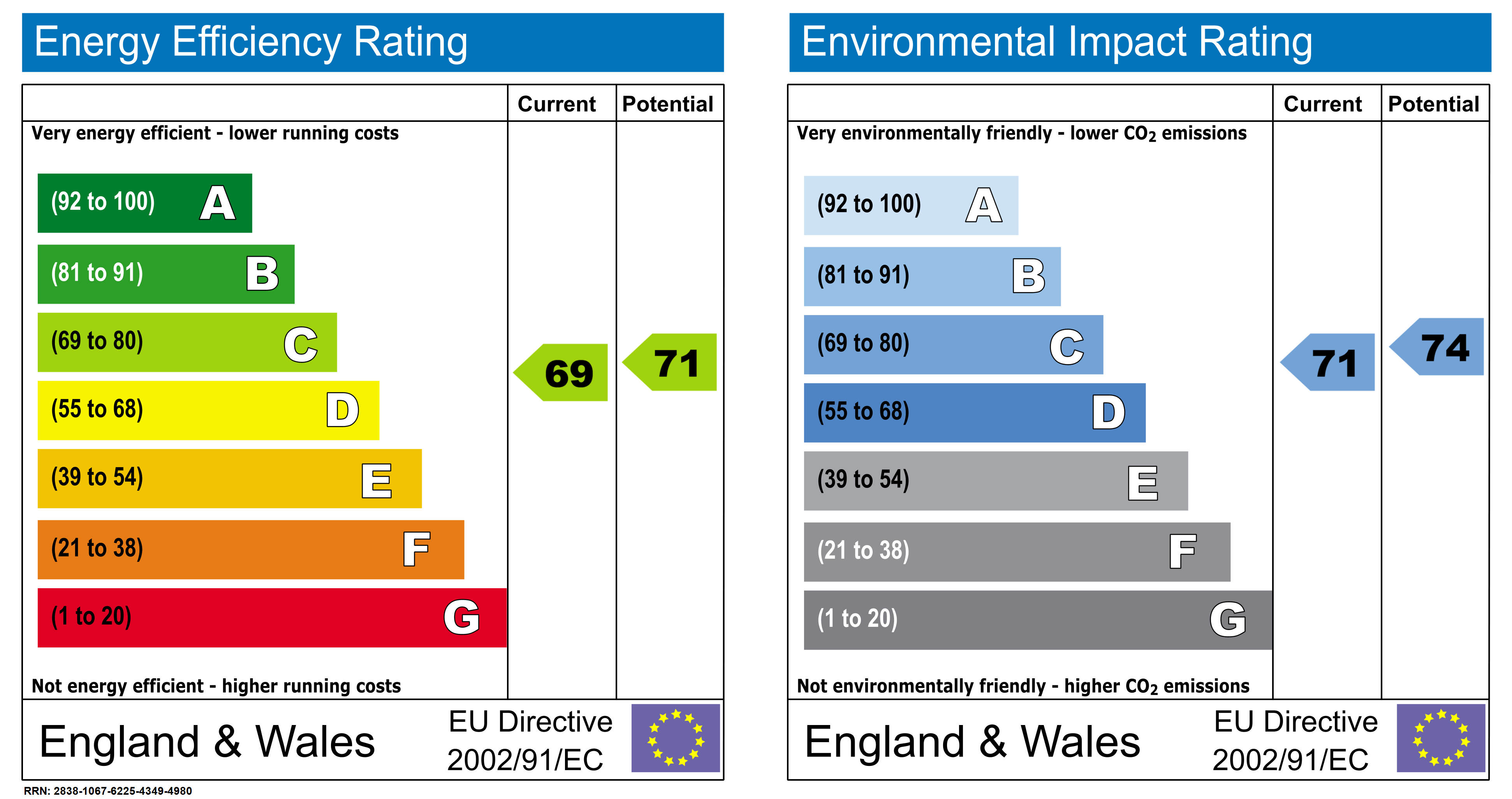How Much Does an EPC Certificate Cost?
On average, an EPC will cost between £60-£120. The price will differ depending on several factors. If you’re looking to build, sell or rent a property in the UK, you are legally required to supply an Energy Performance Certificate. This is typically referred to as an EPC.
While it does cost to undertake an EPC, it is necessary for these purposes. According to the Gov UK website, an EPC is legally required to be displayed within a property in Scotland. This is not necessary for England, Wales and Northern Ireland.
In this article, we will be discussing everything there is to know about EPC certificates, and how much they cost.
Do I need an Energy Performance Certificate?
If you’re renting, buying or selling, an EPC is required by law. Even if you’re not currently going through these processes, it’s still recommended to pay for an EPC so you can keep track of your home’s efficiency. Make sure to do an EPC after changing gas and electric companies and not before.
If you’re selling or purchasing a listed building there can be an exception to this rule. The UK Government website states that in some cases a listed building can be exempt from needing a certificate. This occurs if improving the energy performance of a listed property impacts or alters the building.
Save on Your Property Survey
Speak to a RICS Surveyor Today
What is Included in the EPC Cost?
The EPC cost covers the EPC certificate and the cost of the assessor of the property.
A certificate is sent after the energy efficiency rating and efficiency testing have been conducted. Each property is rated through a traffic light system scale. The ratings are A-G, with G (red) being the least efficient, and A (green) being the most.

The EPC certificate is four pages long. It displays how energy efficient your property is. It will display energy efficiency improvements on how you can improve your property.
It covers the property for 10 years. After this time, a new EPC will need to be taken as the efficiency of a property can change over time.
The EPC will also recommend any changes that can be made to the property to improve its energy ratings and proficiency. If these changes are made, this will improve energy usage.
How Long Does an EPC Take?
The length of time it takes to have an EPC check after application will vary. They are typically carried out within 3 days of your application being received. You will need an accredited EPC assessor to carry out the EPC.
To apply for an EPC Certification, you can visit the GOV.UK website.
It doesn’t take long to carry out an EPC assessment on the home, on average, it takes 30-45 minutes. If your house is large, it may take longer to complete. When the assessor arrives at your property, they will provide you with a better idea of how long the process will take.
How to Check if You Have a Valid EPC
When you’re selling a property, you will also need to provide an EPC. Your estate agent will request this. As an EPC will cover the property for 10 years you may already have one of these.
If you’re a potential buyer, it’s useful to check whether the property you’re looking to buy, sell or rent already has one. The GOV.UK website allows you to search and find an energy certificate on their records.
For properties in Scotland, you will need to refer to the Scottish Government website that covers this topic in more detail.
Can I Do My Own EPC Certificate?
No, you cannot carry out or approve an EPC yourself, this needs to be done by a professional domestic energy assessor.
Save on Your Property Survey
Speak to a RICS Surveyor Today
EPC Certificate Cost Factors
You are required to pay for an EPC certificate, but they aren’t too expensive to buy. The cost factors will vary due to several factors, including:
- The size of the house
- The location of the house
- The type of the house
- The assessor (some will charge more than others)
While the cost can vary, it shouldn’t cost more than £200 to have your property checked. Here is a breakdown of the overage costs:
| EPC Factors | Cost (On Average) |
|---|---|
| EPC | £60 - £120 (price can be above or below this) |
| Bringing a building up to band E | £3500 (maximum amount) |
| No EPC Rating Fine | Up to £200 |
| Rental property below band E fine | Up to £5000 |
In addition to the cost of the EPC, if you have a low-scoring property, it’s recommended to improve its energy efficiency. This can cost a significant amount of money, and these are improvements you will need to pay for yourself.
Bringing a Building up to Band E
For example, if you want to rent out your property, it will need to achieve a rating of E at least. This is due to the Minimum Energy Efficiency Standards that were created in 2018. If the property will cost more than £3500 to make it more efficient, house owners can be exempt from this.
EPC Fines
If a landlord’s property doesn’t meet the regulated standards needed, they can be fined up to £5000, which is a significant amount. If a landlord doesn’t have an EPC rating at all, they will receive a fine of up to £200.
Energy Performance Certificate rules and Regulations
While all houses being bought, sold or rented need to have an EPC, owners can choose to opt-out of the EPC register. This register is publicly accessible and contains the ratings of all houses included.
To opt-out of the national database, you need to contact the GOV.UK helpdesk. Here are the contact details:
Phone: 020 3829 0748
Email: dluhc.digital-services@levellingup.gov.uk
This can be done at any point, and it takes around 2 weeks to be removed from the register.
The Benefits of Improving Your EPC Rating
There are many reasons you can benefit from improving your EPC rating, such as:
- Lowered energy costs - The better your EPC rating is, the lower your energy costs will be. This is because the home will be more efficient, and will reduce the amount of energy that’s needed.
- Easier to buy, sell or rent - If your property has a high EPC rating, the property will be looked upon more favourably. People can be put off properties with a low EPC rating as they know it will cost more to run.
- Better for the environment - By improving your EPC rating you will lower the amount of energy you’re using. This has a smaller impact on the environment.
Even if you’re not looking to buy, sell, or rent, undertaking an EPC is worth considering. They are useful to provide you with a better idea of your home and how much you will need to pay in energy bills.
For more information on EPCs, check out our What is an EPC Certificate? article.
Save on Your Property Survey
Speak to a RICS Surveyor Today
